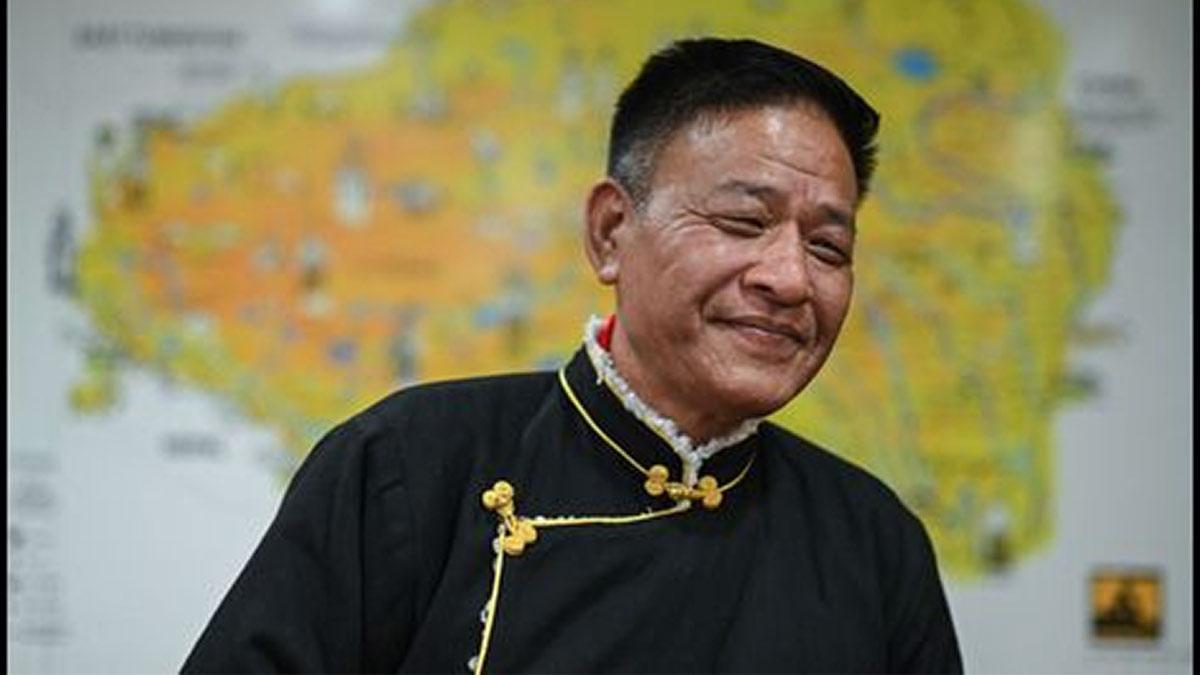As Tibet marked the 66th anniversary of the Tibetan National Uprising Day, Prime Minister-in-exile Penpa Tsering, in the presence of delegations from Slovakia and Estonia, voiced concerns over China’s ongoing policies towards Tibet.
Speaking on Monday, he asserted that the current Chinese leadership is systematically working to “eliminate the very identity of the Tibetan people as a unique human race.”
Addressing the gathering from Dharamsala, the headquarters of the Tibetan administration in exile, Tsering criticized China’s approach, which he said operates under the guise of “strengthening the consciousness of Chinese national unity.” He claimed that Beijing’s policies of sinicisation are leading to the erosion of Tibetan identity and depriving Tibetans of their fundamental human rights.
Recalling the events of the 1959 uprising, Tsering highlighted the devastating impact of China’s actions, noting that over a million Tibetans lost their lives. Additionally, the legitimate Tibetan government, led by His Holiness the Dalai Lama, was forced into exile along with around 80,000 Tibetans.
“This marks one of the darkest and most challenging periods in Tibet’s history. As we observe Tibetan National Uprising Day, we pay tribute to our courageous martyrs and stand in solidarity with our fellow Tibetans who continue to suffer under China’s oppressive rule,” he said.
Tibetan Uprising Day, held annually on March 10, commemorates the resistance against Chinese control in 1959. Following the suppression of the uprising, the Dalai Lama fled to India, where he has lived ever since. Around 80,000 Tibetans also sought refuge in neighboring countries. Efforts at dialogue between the Dalai Lama’s envoys and Chinese authorities stalled in 2010 after nine rounds of discussions.
Tsering further elaborated on Beijing’s sinicisation policies, stating that strict restrictions have been imposed on Tibetan monasteries, completely denying religious freedom. Additionally, he pointed out that over a million young Tibetan children have been forcibly placed in colonial-style boarding schools across Tibet.
Under the pretense of promoting a “national common language,” China has also severely curtailed the teaching and use of the Tibetan language, he noted.
Tsering also condemned the unchecked mining and large-scale construction projects undertaken by the Chinese government, which he said have caused irreversible harm to Tibet’s environment, with consequences extending beyond its borders.
“These actions by China not only violate international and domestic laws but also go against fundamental human values,” he asserted.
Despite these challenges, Tsering reiterated Tibet’s commitment to non-violence. “As envisioned by His Holiness, the Tibetan people continue to uphold the path of non-violence and dialogue, seeking a peaceful and mutually beneficial resolution to the Sino-Tibet conflict through the Middle Way Approach,” he said.
He further emphasized that Tibetans, as the rightful custodians of the Tibetan plateau, hold a rich cultural and religious heritage that cannot be erased. “Our spirit remains unbreakable, our traditions irreplaceable, and the leadership of His Holiness the Dalai Lama unparalleled,” he declared.
Prior to attending the Tibetan National Uprising Day event organized by the Central Tibetan Administration, the visiting delegations from Slovakia and Estonia had an audience with the Dalai Lama at his residence.
Read also| Trump Sends Letter to Iran’s Leader on Nuclear Program, Anticipates Quick Response


















